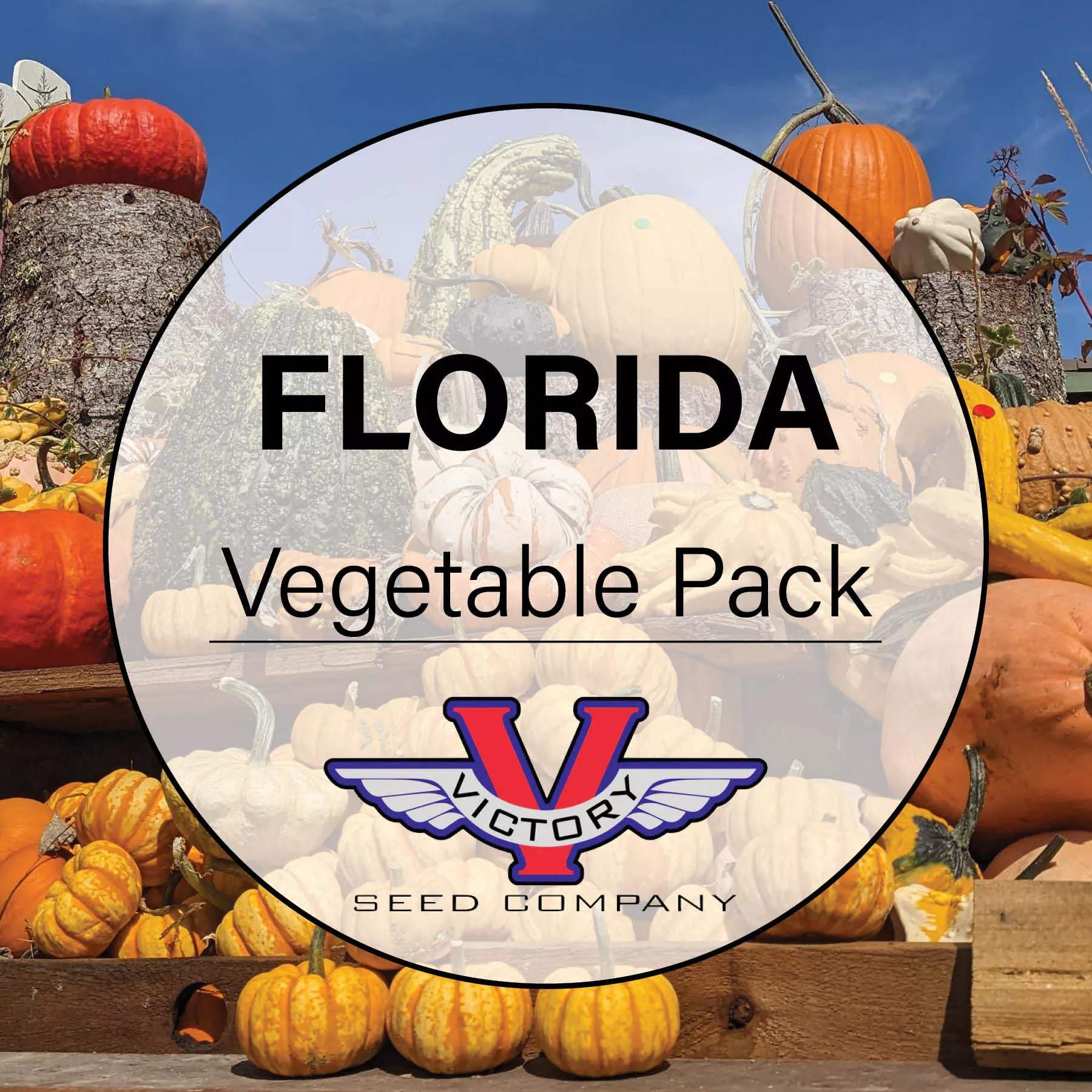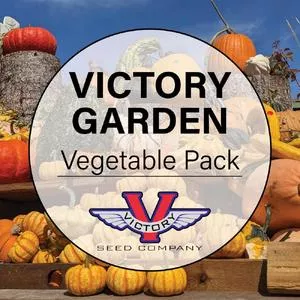Florida Vegetable Garden Pack
Price: $99.95
SKU: 30096041We have chosen our favorite and best-selling varieties for Florida and made them available in this convenient collection.
Place a single order for this item and you will get one packet of each of the items shown below at an overall discount. If you prefer, you can order them individually one by one, by clicking on each item in the list.
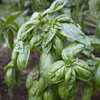 Basil, Italian Large Leaf (Sweet)
Basil, Italian Large Leaf (Sweet)
Sweet basil with large leaves, perfect for pesto and Italian dishes, thrives in full sun.
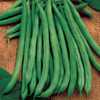 Blue Lake 274 Bush Green Garden Bean
Blue Lake 274 Bush Green Garden Bean
A canner's favorite green snap bean.
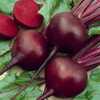 Detroit Dark Red Beet
Detroit Dark Red Beet
Renowned for its sweet, tender roots and versatile use.
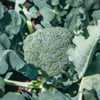 Di Ciccio Broccoli
Di Ciccio Broccoli
An old Italian heirloom broccoli. Compact plants.
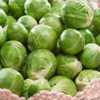 Catskill Brussels Sprouts
Catskill Brussels Sprouts
Large, dark-green and firm sprouts.
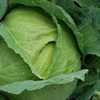 All Seasons Cabbage
All Seasons Cabbage
Heat resistant, fine-flavored and produces good, hard heads.
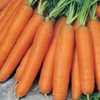 Scarlet Nantes Carrot
Scarlet Nantes Carrot
Outstanding flavor and semi-tapered roots.
 Snowball Self-Blanching Cauliflower
Snowball Self-Blanching Cauliflower
Self-blanching cauliflower with large leaves and mild flavor.
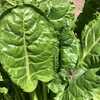 Perpetual Swiss Chard
Perpetual Swiss Chard
Very hardy being resistant to drought, bolting, and later in the season, to frost.
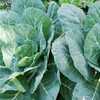 Georgia (Southern) Collards
Georgia (Southern) Collards
Heat and cold tolerant; slow to bolt. Non-heading, juicy blue-green, wavy leaves will stand light freezing which improves their cabbage-like flavor.
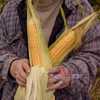 Golden Bantam, Improved 12-Row Sweet Corn
Golden Bantam, Improved 12-Row Sweet Corn
An improved version of 'Golden Bantam' with larger ears that stay tender longer.
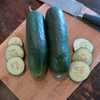 Ashley Cucumber
Ashley Cucumber
Early, dark-green, 7-8 inches long, tapered. Excellent slicer.
 Big Max Pumpkin
Big Max Pumpkin
Commonly grow to 50 to 70 pounds. A good pumpkin for pies.
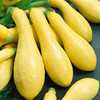 Early Prolific Straightneck Summer Squash
Early Prolific Straightneck Summer Squash
The fruits taper towards the stem end and are a nice lemon yellow color.
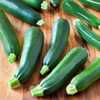 Black Beauty Zucchini Summer Squash
Black Beauty Zucchini Summer Squash
Fruit are harvested at 6 to 8 inches by two inches and dark green.
 Florida Market Eggplant
Florida Market Eggplant
Vigorous plant growth with large purple, bell-shaped fruits.
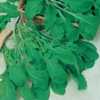 Arugula
Arugula
Spicy-flavored and versatile, this cool-weather green enhances salads, soups, and sauces.
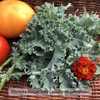 Dwarf Blue Curled Scotch Kale (Vates)
Dwarf Blue Curled Scotch Kale (Vates)
Leaves are finely curled, bluish green, low growing.
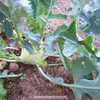 Early White Vienna Kohlrabi
Early White Vienna Kohlrabi
Very sweet and mild, creamy-white, tastes like a mild turnip.
 Broad London (Large American Flag) Leek
Broad London (Large American Flag) Leek
Stalks are sturdy, long, thick, and broad with pearly-white bulbs.
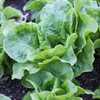 Buttercrunch Bibb Lettuce
Buttercrunch Bibb Lettuce
Long standing, heat tolerant, and dark green with reddish tints.
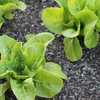 All The Year Round Butterhead Lettuce
All The Year Round Butterhead Lettuce
Medium sized heads stay firm and solid even in hot weather.
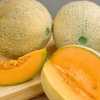 Planter's Jumbo Melon
Planter's Jumbo Melon
Fruits have a firm rind with light ribs and thick, orange flesh.
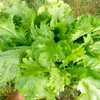 Old Fashioned Mustard Greens
Old Fashioned Mustard Greens
Regarded as one of the tastiest varieties of mustard greens.
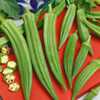 Clemson Spineless 80 Okra
Clemson Spineless 80 Okra
Plants grow 3 to 5 feet tall developing deep-green, straight and spineless ribbed 6 to 9 inch pods. One of the most popular okra varieties.
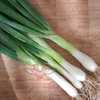 Heshiko Japanese Bunching Onion
Heshiko Japanese Bunching Onion
Stalks are tender, 12-14 inches tall, are flavorful, mild, not overly pungent.
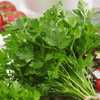 Italian Parsley
Italian Parsley
Deeply cut, dark green leaves with rich flavor, ideal for garnishes, soups, and herbal remedies.
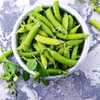 Sugar Snap Pea
Sugar Snap Pea
Vigorous, tall vines produce tasty and tender pods when young.
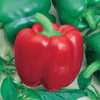 California Wonder (Bell) Pepper
California Wonder (Bell) Pepper
The flesh is thick, mild and sweet flavored.
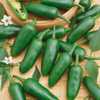 Jalapeno Hot Pepper
Jalapeno Hot Pepper
Dark green, tapered peppers. Good for pickling or fresh.
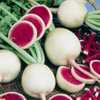 Watermelon Radish
Watermelon Radish
Sweet, white skinned with dark pink interiors.
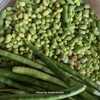 White Acre Southern Pea
White Acre Southern Pea
An old heirloom cream pea matures early and produces over a long period.
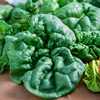 Bloomsdale Longstanding Spinach
Bloomsdale Longstanding Spinach
Early, dark green, crumpled leaves can be sown in spring or fall.
 Sunflower, Giant Greystripe
Sunflower, Giant Greystripe
Used as a snack, or add to bread, rolls, or as a topping to a green salad.
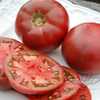 Cherokee Purple Tomato
Cherokee Purple Tomato
80 days, indeterminate, large dark pink-purple fruit with complex flavor, ideal for slicing.
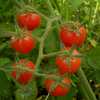 Everglades Tomato
Everglades Tomato
80 days, indeterminate, tiny pink fruit with huge flavor, heat tolerant, very productive, pest resistant.
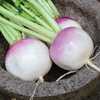 Purple Top White Globe Turnip
Purple Top White Globe Turnip
Round roots that are bright purple on the upper part and white below.
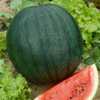 Florida Giant Watermelon
Florida Giant Watermelon
Nearly round, can reach 60 pounds with bright red, firm and sweet flesh.
Place a single order for this item and you will get one packet of each of the items shown below at an overall discount. If you prefer, you can order them individually one by one, by clicking on each item in the list.
 Basil, Italian Large Leaf (Sweet)
Basil, Italian Large Leaf (Sweet)Sweet basil with large leaves, perfect for pesto and Italian dishes, thrives in full sun.
 Blue Lake 274 Bush Green Garden Bean
Blue Lake 274 Bush Green Garden BeanA canner's favorite green snap bean.
 Detroit Dark Red Beet
Detroit Dark Red BeetRenowned for its sweet, tender roots and versatile use.
 Di Ciccio Broccoli
Di Ciccio BroccoliAn old Italian heirloom broccoli. Compact plants.
 Catskill Brussels Sprouts
Catskill Brussels SproutsLarge, dark-green and firm sprouts.
 All Seasons Cabbage
All Seasons CabbageHeat resistant, fine-flavored and produces good, hard heads.
 Scarlet Nantes Carrot
Scarlet Nantes CarrotOutstanding flavor and semi-tapered roots.
 Snowball Self-Blanching Cauliflower
Snowball Self-Blanching CauliflowerSelf-blanching cauliflower with large leaves and mild flavor.
 Perpetual Swiss Chard
Perpetual Swiss ChardVery hardy being resistant to drought, bolting, and later in the season, to frost.
 Georgia (Southern) Collards
Georgia (Southern) CollardsHeat and cold tolerant; slow to bolt. Non-heading, juicy blue-green, wavy leaves will stand light freezing which improves their cabbage-like flavor.
 Golden Bantam, Improved 12-Row Sweet Corn
Golden Bantam, Improved 12-Row Sweet CornAn improved version of 'Golden Bantam' with larger ears that stay tender longer.
 Ashley Cucumber
Ashley CucumberEarly, dark-green, 7-8 inches long, tapered. Excellent slicer.
 Big Max Pumpkin
Big Max PumpkinCommonly grow to 50 to 70 pounds. A good pumpkin for pies.
 Early Prolific Straightneck Summer Squash
Early Prolific Straightneck Summer SquashThe fruits taper towards the stem end and are a nice lemon yellow color.
 Black Beauty Zucchini Summer Squash
Black Beauty Zucchini Summer SquashFruit are harvested at 6 to 8 inches by two inches and dark green.
 Florida Market Eggplant
Florida Market EggplantVigorous plant growth with large purple, bell-shaped fruits.
 Arugula
ArugulaSpicy-flavored and versatile, this cool-weather green enhances salads, soups, and sauces.
 Dwarf Blue Curled Scotch Kale (Vates)
Dwarf Blue Curled Scotch Kale (Vates)Leaves are finely curled, bluish green, low growing.
 Early White Vienna Kohlrabi
Early White Vienna KohlrabiVery sweet and mild, creamy-white, tastes like a mild turnip.
 Broad London (Large American Flag) Leek
Broad London (Large American Flag) LeekStalks are sturdy, long, thick, and broad with pearly-white bulbs.
 Buttercrunch Bibb Lettuce
Buttercrunch Bibb LettuceLong standing, heat tolerant, and dark green with reddish tints.
 All The Year Round Butterhead Lettuce
All The Year Round Butterhead LettuceMedium sized heads stay firm and solid even in hot weather.
 Planter's Jumbo Melon
Planter's Jumbo MelonFruits have a firm rind with light ribs and thick, orange flesh.
 Old Fashioned Mustard Greens
Old Fashioned Mustard GreensRegarded as one of the tastiest varieties of mustard greens.
 Clemson Spineless 80 Okra
Clemson Spineless 80 OkraPlants grow 3 to 5 feet tall developing deep-green, straight and spineless ribbed 6 to 9 inch pods. One of the most popular okra varieties.
 Heshiko Japanese Bunching Onion
Heshiko Japanese Bunching OnionStalks are tender, 12-14 inches tall, are flavorful, mild, not overly pungent.
 Italian Parsley
Italian ParsleyDeeply cut, dark green leaves with rich flavor, ideal for garnishes, soups, and herbal remedies.
 Sugar Snap Pea
Sugar Snap PeaVigorous, tall vines produce tasty and tender pods when young.
 California Wonder (Bell) Pepper
California Wonder (Bell) PepperThe flesh is thick, mild and sweet flavored.
 Jalapeno Hot Pepper
Jalapeno Hot PepperDark green, tapered peppers. Good for pickling or fresh.
 Watermelon Radish
Watermelon RadishSweet, white skinned with dark pink interiors.
 White Acre Southern Pea
White Acre Southern PeaAn old heirloom cream pea matures early and produces over a long period.
 Bloomsdale Longstanding Spinach
Bloomsdale Longstanding SpinachEarly, dark green, crumpled leaves can be sown in spring or fall.
 Sunflower, Giant Greystripe
Sunflower, Giant GreystripeUsed as a snack, or add to bread, rolls, or as a topping to a green salad.
 Cherokee Purple Tomato
Cherokee Purple Tomato80 days, indeterminate, large dark pink-purple fruit with complex flavor, ideal for slicing.
 Everglades Tomato
Everglades Tomato80 days, indeterminate, tiny pink fruit with huge flavor, heat tolerant, very productive, pest resistant.
 Purple Top White Globe Turnip
Purple Top White Globe TurnipRound roots that are bright purple on the upper part and white below.
 Florida Giant Watermelon
Florida Giant WatermelonNearly round, can reach 60 pounds with bright red, firm and sweet flesh.
Customer Reviews:
Do you have experience with this one? 📝 📣 Write a review!
No reviews have been posted yet.

